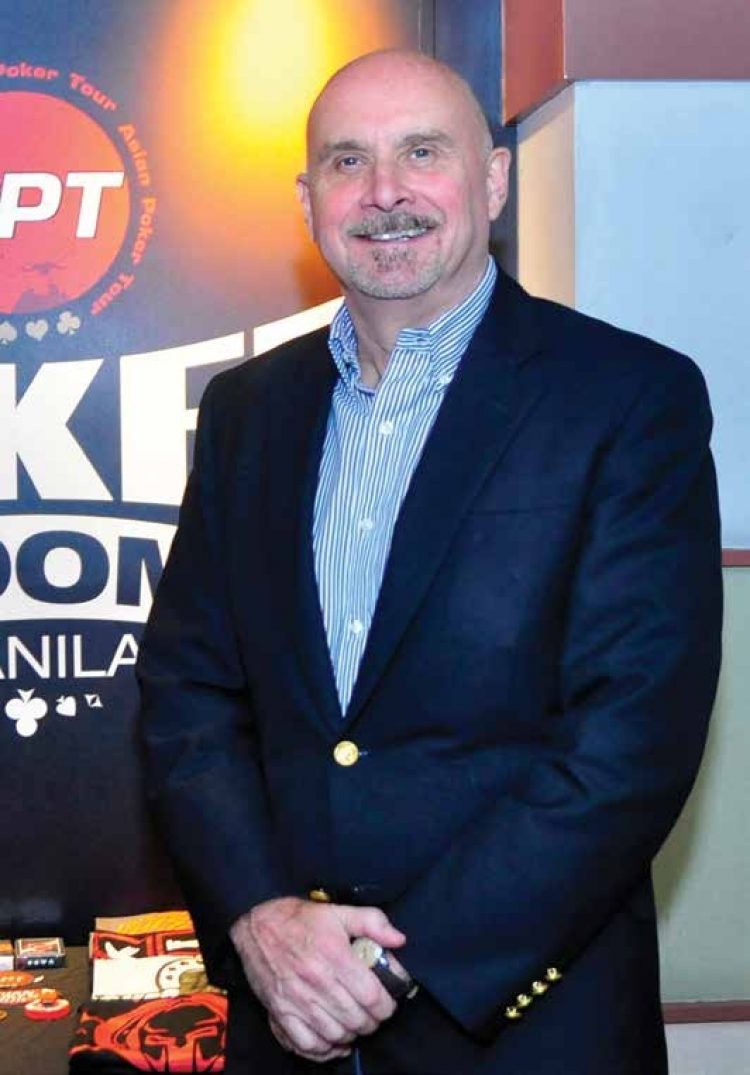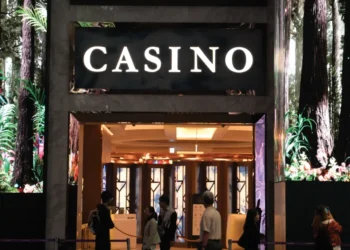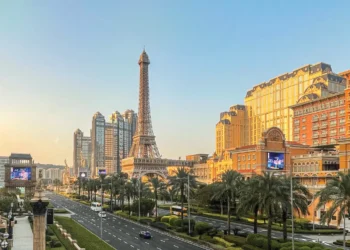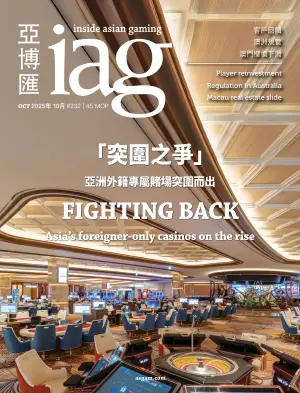Having dreamt of working abroad since he was a teenager, Jeff Mann soon made Asia his home – establishing a hugely successful business in Hong Kong and travelling the region before unexpectedly landing in his current role with local gaming operator AsianLogic.
Ben Blaschke: Thanks for speaking with us Jeff. First of all, can you tell us a bit about your background?
Jeff Mann: I was born and brought up in London – a “cockney boy.” I think I had a pretty normal middle-class upbringing with very supportive parents within their means. I was an average student but for sure nothing special academically. And mad about playing sport … any sport! My only claim to fame though was making the London Schoolboys soccer team one year. I don’t think I was ever unhappy except of course at exam results time! I do remember clearly though that from the age of around 15, I wanted to work for myself and work overseas.
BB: So how did that come to be a reality?
JM: It’s a long story and a good one but to tell it properly, I need a couple of hours and a few beers! Let’s just say for now that “fate played a hand” and in my mid-20s I was given the amazing opportunity of becoming a junior account executive at what was then the largest Public Relations consultancy in Hong Kong representing some of the biggest blue chip companies around at that time. Fast forward a couple of years and “fate” was instrumental once again in giving me the opportunity to start my own PR Company in Hong Kong with a secretary and one client only. Fast forward another 20-plus years and that company had grown to 160 employees operating out of six Asian cities and was at the time the largest independent PR firm in Asia. For two years I ran the business from our Tokyo office which was very challenging … but what an adrenalin rush!
BB: And yet here you are in the gaming industry!
JM: Yes – another long and interesting story! After all these years running my own business with all its responsibilities, including managing what was a sizeable and escalating monthly overhead, I was becoming very stressed and very unhappy. I needed to get out. Fortunately that exercise went well and I had the opportunity to sit back and do absolutely nothing for a few months. When boredom finally set in I dabbled in a few business ventures in Hong Kong, the Philippines and Australia. In early 2007 “fate” played another hand. I attended a social function in Manila also attended by two successful Hong Kong businessmen who I had known previously. In short, they were the major shareholders in a gaming company, AsianLogic, headquartered in Manila; they intended to list the company on the London Stock Exchange; would I like to join the team? I distinctly remember agreeing to a short term contract of three or four months and no more … come 15 March 2017 I will have been with the Group for 10 years! So much for a short term contract, but it speaks volumes about AsianLogic as a company.
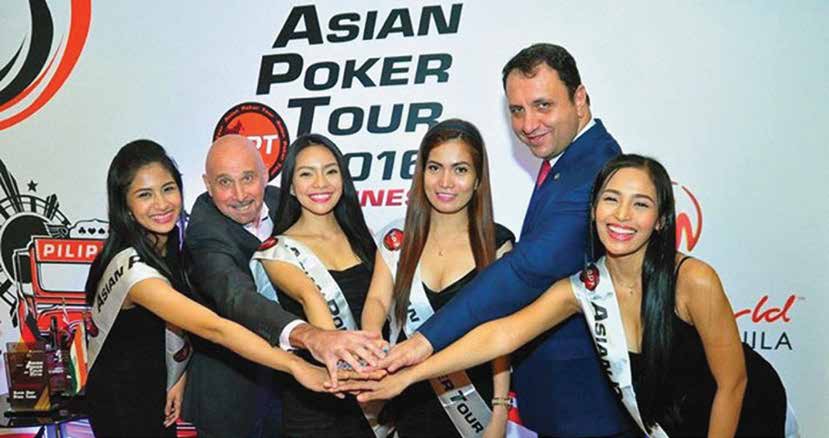
BB: Can you tell us a bit about AsianLogic and also your role there?
JM: AsianLogic Group is a major international player in both the online and land-based gaming industry. When I started with them in 2007 there were less than 60 staff. Today that figure is over 2,000 employees. My initial role was to head up group marketing and corporate affairs. I am now involved only with our land-based operations. In 2010 I was appointed CEO of the Asian Poker Tour and earlier this year given the addition responsibility for our land-based sports betting operation MegaSportsWorld (MSW) which is now market leader in the Philippines.
BB: Having been heavily involved in the poker industry myself, I remember following the APT closely during those early years. What are your memories of that time?
JM: When I took over, the APT only had two events per year – one in Manila and the other in Macau – so the initial goal was to run more events in more places. Today we have at least 10 major events per year, each running for between seven and nine days and offering up to 20 separate poker tournaments – truly festivals of poker. In some respects APT has been a pioneer: we were the first to take truly international poker events to India, Cambodia and Vietnam and I am very proud of the fact that at any APT event now we will have at least 20 nationalities represented in the player line-up. But Asia is a difficult market to grow in terms of poker because of regulatory and legal constraints. In Vietnam and Cambodia it must be an all foreigner field as locals, unless they have a foreign passport, can’t play. In China and Japan and many other counties playing poker where cash is involved is illegal. Poker rooms and tournaments are running in these countries with operators skirting round or adapting to the “legality” issues but in these grey areas the APT is just not interested.
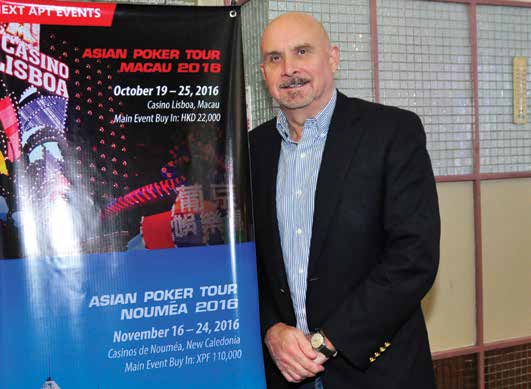
BB: How has the game grown in Asia since you started?
JM: The country that has grown and matured the most in terms of poker is the Philippines. I think the boom is over but the market now is steady and active. Every major casino has a poker room and there are a number of stand-alone rooms operating, but I feel the market is now nearing saturation point in terms of both the number of poker rooms and the number of poker tournaments on offer.
BB: How about in Macau specifically? Of course, the APT is returning to Macau this month after a three-year hiatus which is great but is Macau in general still reluctant to embrace poker?
JM: It is good to be returning this year and really we would like to stage at least two events a year in Macau every year. It is not for the want of trying. We need a host casino with an operating poker room but given the small number of poker rooms operating it is not easy. When you think of Macau as the gambling hub of the world and then realize that there is one independent poker room in Manila operating more tables nightly than the entire number on offer throughout Macau, it puts things clearly in perspective! The root cause is the imposed table cap for all casinos in Macau. The quickest way for a casino executive to get fired would be if he replaced a profitable baccarat table with a poker table. Over the years it has been suggested that the exemption of poker tables from this cap was under consideration by the regulator. If this happened then the poker scene in Macau would change overnight and would, I feel, fuel the next boom in poker throughout Asia.
BB: Let’s talk food. What’s your favorite cuisine?
JM: I really don’t have a favorite cuisine, I just enjoy food in general … and wine! I enjoy Sauvignon Blanc for white wine, normally from New Zealand. If it’s on the list it would be Craggy Range. For red, lately I’ve been into Spanish wine – most Reserva/Gran Reserva Tempranillo’s from Rioja or Ribera del Duero are pretty good.
BB: Do you have a favorite restaurant either in the Philippines or further abroad?
JM: There are a few. In Hong Kong I like Carbone, Maxims at City Hall, Red Pepper and Ruth’s Steakhouse. In Manila there is Sala, Sala Bistro, Blackbird and El Circulo. And Macau I like Morton’s, Tromba Rija and a few family run Chinese and Portuguese restaurants in the back streets that I can’t remember the names of but know where they are!






